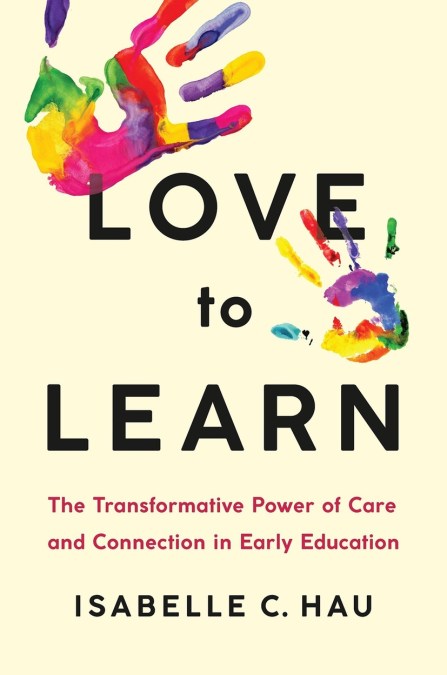childhood in general and education in particular is the quality and care of the relationships a child forms. Love to Learn shows how to build and develop these relationships — and unlock every child’s true potential.
Early relationships are the key to healthy brain development, resilience, and lifelong flourishing. Children need to be loved, to be valued, to interact, and to be listened to. When children have the space and time to play and explore through nurturing positive relationships, then children learn. But loving relationships are precisely what so many children are missing, and modern factors are making it more difficult for children to build these necessary bonds.
– Kids are growing up in smaller families with fewer siblings, and in more single-parent households.
– They have fewer adult family friends and mentors.
– They have less contact with grand-parents and grand-adults.
– They spend 60% less time with friends than children did a decade ago.
– They play outside less-half the time spent by their parent’s generation.
– They find themselves increasingly immersed in solitary realms of screens, a modern sanctuary where parents seek refuge as well.
– Many kids are so overscheduled they have less time to build friendships
Love to Learn offers a vision for a future where learning is relational, and love is a literacy. It is a provocative paradigm shift, from child-centered education to relationship-centered learning. It weaves in stories of perseverance, empathy, creativity, and showcases innovations anchored in the latest neuroscience and technology advance – all driven by the desire to unlock the inherent human potential in any child.
This hope-filled book seeks to change how we raise our children, how we run early learning environments, and how we construct care-full communities. It aims to inspire and engage readers, catalyze new solutions, and in doing so, change our understanding of childhood itself.
Early relationships are the key to healthy brain development, resilience, and lifelong flourishing. Children need to be loved, to be valued, to interact, and to be listened to. When children have the space and time to play and explore through nurturing positive relationships, then children learn. But loving relationships are precisely what so many children are missing, and modern factors are making it more difficult for children to build these necessary bonds.
– Kids are growing up in smaller families with fewer siblings, and in more single-parent households.
– They have fewer adult family friends and mentors.
– They have less contact with grand-parents and grand-adults.
– They spend 60% less time with friends than children did a decade ago.
– They play outside less-half the time spent by their parent’s generation.
– They find themselves increasingly immersed in solitary realms of screens, a modern sanctuary where parents seek refuge as well.
– Many kids are so overscheduled they have less time to build friendships
Love to Learn offers a vision for a future where learning is relational, and love is a literacy. It is a provocative paradigm shift, from child-centered education to relationship-centered learning. It weaves in stories of perseverance, empathy, creativity, and showcases innovations anchored in the latest neuroscience and technology advance – all driven by the desire to unlock the inherent human potential in any child.
This hope-filled book seeks to change how we raise our children, how we run early learning environments, and how we construct care-full communities. It aims to inspire and engage readers, catalyze new solutions, and in doing so, change our understanding of childhood itself.
Newsletter Signup
By clicking ‘Sign Up,’ I acknowledge that I have read and agree to Hachette Book Group’s Privacy Policy and Terms of Use

